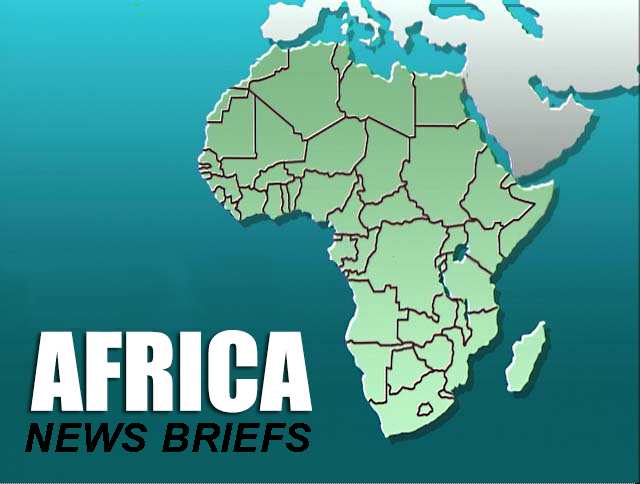The stability of the Sahel region of Africa was due to Libya and its leader, the late Muammar Gadhafi. The events that led to destabilizing of the Sahel, including Mali, was the illegal overthrow of the legitimate Libyan government and its leader, by the United States and France, with the backing of NATO.
According to the online news site iol.ca.za, the harsh sanctions imposed on Mali in 2021, which hurt millions of the vulnerable indigenous population, were the result of a popular coup d’etat against a French-backed regime.
Protestors demanded that the regime of the now-deposed president, Ibrahim Boubacar Keita, resign. The regime had ignored nationwide protests, and a third of the population—nearly 7.5 million people—of the landlocked country, was desperately in need of humanitarian aid.
President Emmanuel Macron announced the official end of France’s so-called “anti-jihadist” mission in West Africa. The move was accelerated by a collapse of relations with Mali’s military junta, leading to the withdrawal of French troops, reported Radio France Internationale. Also reported was the military regime’s acceptance of Russian assistance to the protest of France. France’s 5,000 troops in the Sahel have been reduced to 3,000.
Rich nations rejected Africa’s demand for climate reparations
Notably absent at COP27 was Chinese President, Xi Jinping. Arriving in Sharm el Sheikh, Egypt, on the last day of the climate summit was U.S. president Joe Biden. Mr. Biden came with his pledge to increase international climate financing from $5.7 billion to $11.4 billion per year by 2024. However, noted the global publication Foreign Policy, the U.S. Congress approved just $1 billion.
For the U.S., it may be an uncomfortable fact that China is perhaps the principal funder of renewable-energy projects in Africa. At last year’s China-Africa Cooperation forum, Beijing pledged to ramp up investments in solar, wind, and other renewables across the continent. In addition, the Asian nation has made no coal power investments since 2021.
African countries demanded—which apparently landed on deaf ears—that the 12 year old promise of $100 billion annually by the Global-North for climate adaptation, which has never been realized, be met.
Rich countries have so far rejected demands for climate reparations. “One analysis by Carbon Brief, taking account of historic carbon emissions with proportional contributions to the $100 billion pledge, suggests the U.S. owes developing countries nearly $40 billion,” reported Foreign Policy.
Europe wants to turn Africa into its gas station
“European countries have been scrambling for alternative sources of gas after the continent’s former top supplier, Russia, slashed exports in apparent retaliation for Western sanctions over Moscow’s invasion of Ukraine in February,” reported France24.
Europe wants “to turn Africa into its gas station,” Mohamed Adow, director of the Power Shift Africa think tank, said at the UN climate summit in Egypt.
Adow believes Africa’s plentiful solar and wind resources offered a better alternative to energy than investing in gas. “For far too long, Africa has been controlled by outside interests—a resource pool for extraction and export, and a dumping ground for the practices and technologies no longer wanted elsewhere,” he said, reported The Guardian.
According to the Carbon Tracker Think Tank, even though gas prices are currently high, and the top five oil and gas companies have made profits of more than $170 billion so far this year, gas revenues would fall by half by 2040, and the gas market would see record low prices due to shrinking demand.
Macky Sall, president of Senegal, told the Guardian it was wrong for developed countries to try to urge African leaders not to drill for gas when the West had grown rich on fossil fuels. “Why not Africa?” he asked.
Ethiopia: Addis Ababa and Tigray agreement
In early November, the Ethiopian government and Tigray People’s Liberation Front (TPLF), agreed on a ceasefire. The negotiations brokered by the African Union and initiated in South Africa were concluded in Kenya’s capital city of Nairobi.
“The parties have agreed to facilitate unhindered humanitarian access to all in need of assistance in Tigray and neighboring regions, facilitate the unhindered movement of humanitarian aid workers, provide security guarantees for humanitarian aid workers and organizations as well as protection of civilians,” said a statement released by the African Union.
According to the Arab Independent media satellite channel english.almayadeen.net, near the end of August fighting began between the TPLF and Addis Ababa, after nearly a five-month truce. The conflict began near Tigray’s southern border and expanded to areas West and North.
The African Union Commission announced that it “applauds the parties on these significant confidence-building measures and encourages them to continue towards the full implementation of the Cessation of Hostilities Agreement, as part of overall efforts to end the conflict and restore peace, security and stability in Ethiopia.”
—Compiled by Jehron Muhammad, Follow @JehronMuhammad on Twitter













